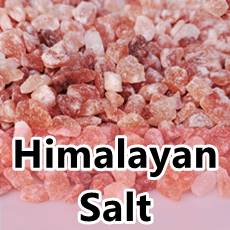Vaccines: Which Ones Are Safe?
The Safety of Vaccines
Fact Checked
×All the content published in our website is fact checked to validate its accuracy.
Visit our guidelines web page to learn more about our strict processes regarding how we review our content's sources: reliable and reputable journals, media websites, universities, colleges, organizations, and professionals.
Our articles are based on scientific evidence, and the references are included in its footnotes, which are clickable links to sound scientific papers.
First published: 09. Dec.2024
Overview
The short answer to the question: "Which Vaccines Are Safe?" is "All of them".
Vaccines are a bonus for mankind, they prevent serious illnesses and have saved millions of lives: a 2024 estimate reported that global immunization efforts have saved roughly 154 million lives over the past 50 years. Most of them (101 million were children). (1)
Nevertheless, there are some small risks; this article will review the downside of vaccination.
References and Further Reading
(1) Shattock, Andrew J et al., (2024). Contribution of vaccination to improved survival and health: modelling 50 years of the Expanded Programme on Immunization. The Lancet, Volume 403, Issue 10441, 2307 - 2316 May 25, 2024
(2) RJ Reihnart, (2020). Fewer in U.S. Continue to See Vaccines as Important. Gallup Poll. Well Being. Jan. 14, 2020
(3) Centers for Disease Control and Prevention, (2024). About CDC’s Vaccine Safety Monitoring Program. Accessed: 09. Dec.2024
(4) Braun MM, Patriarca PA, Ellenberg SS., (1997). Syncope after immunization. Arch Pediatr Adolesc Med. 1997 Mar;151(3):255-9. doi: 10.1001/archpedi.1997.02170400041007. PMID: 9080932
(5) Bohlke K, Davis RL, Marcy SM, Braun MM, DeStefano F, Black SB, Mullooly JP, Thompson RS, (2003). Vaccine Safety Datalink Team. Risk of anaphylaxis after vaccination of children and adolescents. Pediatrics. 2003 Oct;112(4):815-20. doi: 10.1542/peds.112.4.815. PMID: 14523172
(6) Centers for Disease Control and Prevention, (2024). Altered Immuncompetence. Accessed: 09. Dec.2024
(7) Miller ER, Moro PL, Cano M, Shimabukuro TT., (2015). Deaths following vaccination: What does the evidence show?. Vaccine. 2015;33(29):3288-3292 PMID: 26004568 doi: 10.1016/j.vaccine.2015.05.023
(8) Rishi Desai et al., (2013). Potential intussusception risk versus benefits of rotavirus vaccination in the United States. Pediatr Infect Dis J. 2013 Jan; 32(1):1-7 PMID: 22431803 doi: 10.1093/cid/cis191
(9) Eggertson L., (2010). Lancet retracts 12-year-old article linking autism to MMR vaccines. CMAJ. 2010;182(4):E199-E200. doi: 10.1503/cmaj.109-3179. Epub 2010 Feb 8. PMID: 20142376
(10) Mogensen SW, Andersen A, Rodrigues A, Benn CS, Aaby P., (2017) The Introduction of Diphtheria-Tetanus-Pertussis and Oral Polio Vaccine Among Young Infants in an Urban African Community: A Natural Experiment. EBioMedicine. 2017;17:192-198. doi: 10.1016/j.ebiom.2017.01.041. Epub 2017 Feb 1. PMID: 28188123
(11) SAGE non-specific effects of vaccines Working Group, (2014). Evidence based recommendations on non-specific effects of BCG, DTP-containing and measles-containing vaccines on mortality in children under 5 years of age Background paper for SAGE discussions. June 06, 2014
(12) Higgins Julian P T, Soares-Weiser Karla, Lopez-Lopez Jose A, et al, (2016). Association of BCG, DTP, and measles-containing vaccines with childhood mortality: systematic review. BMJ. 2016 Oct 13;355:i5170. doi: 10.1136/bmj.i5170. Erratum in: BMJ. 2017 Mar 8;356:j1241. doi: 10.1136/bmj.j1241. PMID: 27737834
(13) Sørensen MK, Schaltz-Buchholzer F, Jensen AM, Nielsen S, Monteiro I, Aaby P, Benn CS., (2021). Retesting the hypothesis that early Diphtheria-Tetanus-Pertussis vaccination increases female mortality: An observational study within a randomised trial. Vaccine. 2022 Mar 8;40(11):1606-1616. doi: 10.1016/j.vaccine.2021.06.008. Epub 2021 Jun 30. PMID: 34217570
(14) World Health Organization. Vaccines and immunization. Accessed: 09. Dec.2024
(15) Centers for Disease Control and Prevention, (2024). Measles cases surge worldwide, infecting 10.3 million people in 2023. 14. Nov.2024. Accessed: 09. Dec.2024
About this Article
Vaccines: Which Ones Are Safe?, A. Whittall
©2024 Fit-and-Well.com. First Published: 09.Dec.2024. Update scheduled for 09.Dec.2027. https://www.fit-and-well.com/fitness/which-vaccines-are-safe.html
Tags: vaccines




